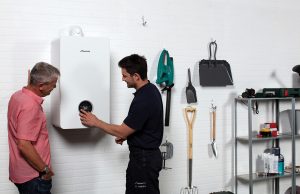The Health and Safety Executive guidance topics state the requirement that “any electrical equipment that has the potential to cause injury is maintained in a safe condition.” Thus, it is important for any business owner, from a sole proprietorship who works from home, from a large multi-national corporation to ensure compliance with this requirement. The responsibility of safe appliances lies with the person who is the duty holder; this could be a business owner, landlord, equipment user, or manager of a premisis.
Any portable appliance in a working area, from a printer to a kettle, to a microwave to even a vacuum cleaner, should have periodic portable appliance testing, especially via a qualified and certified PAT Testing engineer. A PAT Testing engineer will know exactly what to look for and where to look for it, from plugs and outlets to the casings around any portable appliances.
Another group who need to consider adding PAT Testing to their yearly business practice are landlords. If a person is letting out accommodation in order to make money as a business venture, and this includes such places as flats, boats and holiday rentals, then they fall under the same safety regulations as a standard office building. Flats still have plugs and wiring, as well as portable electronic appliances such as microwaves, kettles, and washing machines and all these portable appliances are under the responsibility of the landlord to ensure they are safe under the 1994 Electrical Equipment Regulations.
Other businesses that should perform frequent PAT Testing include beauty salons, night clubs, hotels, doctors’ offices, and health clubs. PAT Testing does not just apply to standard offices with computers and copiers, but any workplace that has portable electric appliances. It not only a smart business move to have all of the companies appliances checked and up to date, but it also ensures the health and safety of both their employees and their customers for the future.




